The Endangered Species Collection
In 2001 the Endangered Species in Mexico collection was issued. The collection consists of ten coins denominated five pesos in a satin BU finish: four are dated 2000 with the remaining six dated 2001: These coins were sold as a complete collection with an informative album entitled Monedas y Especies.
The obverse has the national coar of arms in the centre and surrounding it, ten different coats od arms used throughout Mexico's history.
The total mintage was 30,000.
2000
Royal eagle
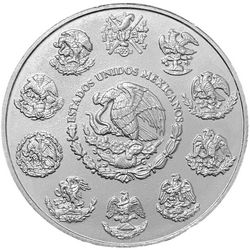
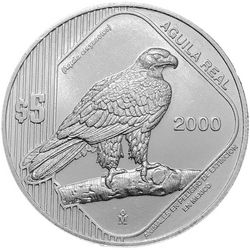
KM-652
The golden eagle (Aguila chrysaetos) is the most widely distributed eagle species and is the national bird of Mexico.
Pronghorn (Berrendo)
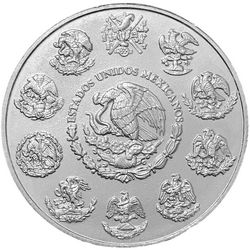
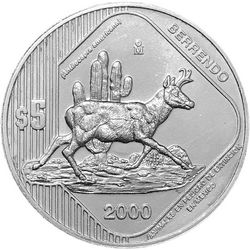
KM-657
The pronghorn can be found from Canada through the west-central United States to northern Mexico. The Mexican subspecies (Antilocapra americana Mexicana) is endangered.
River crocodile
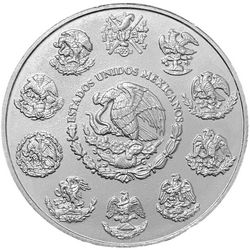
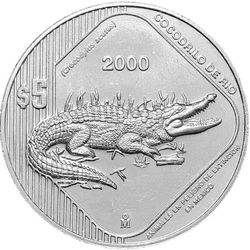
KM-655
The American crocodile (Crocodylus acutus), Mexico's largest reptile, lives primarily in coastal areas of southern Mexico.
River otter (Nutria del rio)
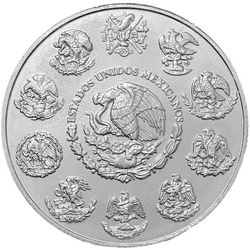
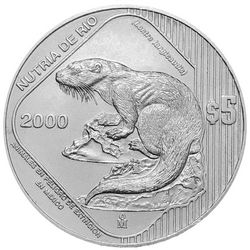
KM-656
The river otter (Lontra longicaudis), also known as a “water dog”, belongs to the same family that includes skunks, badgers and weasels. It spends most of the day swimming in rivers, lakes and lagoons, mainly near coastlands, although some populate the large rivers and lakes of mountain areas. Its populations have declined radically due to hunting (for its beautiful pelt) and habitat destruction. It is considered endangered in Mexico and throughout much of its habitat in the Americas.
2001
Black bear
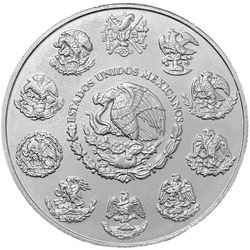
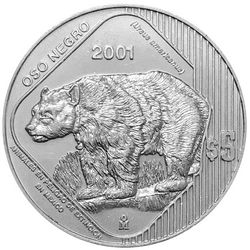
KM-654
The American black bear (Ursus americanus) is the smallest of the bear species in North America. The Mexican black bear (Ursus americanus eremicus), a subspecies of Ursus americanus, is considered very endangered.
Manatee
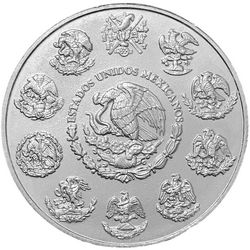
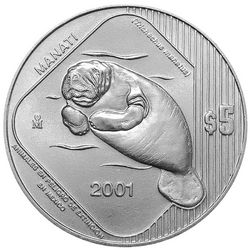
KM-651
The manatee (Trichechus manatus), or sea cow, is a gentle creature that prefers warm shallow water in rivers, estuaries and coastal areas, primarily along the Gulf of Mexico and the Caribbean. It is considered in danger of extinction, and the Mexican government has outlawed hunting of the creature.
Jaguar
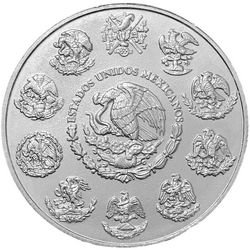
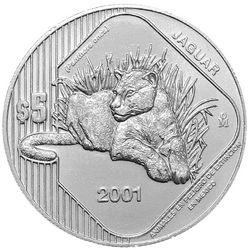
KM-658
The Jaguar (Panthera onca) is North America's largest cat. The jaguar is all but extinct in the United States: Mexico’s subspecies, Panthera onca hernandesii, his threatened and its numbers are declining.
Harpy eagle
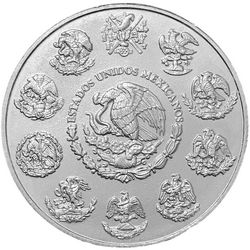
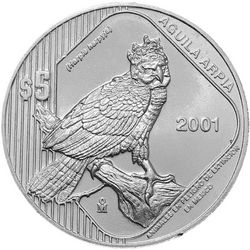
KM-653
The largest and strongest eagle in the world, the harpy eagle (Harpia harpyja) has a wingspan of about six feet while its body is about three feet long. Its habitat ranges from Mexico through Central and South America to Argentina: it is almost extinct in Mexico.
Volcano rabbit (Zacatuche)
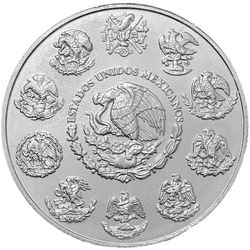
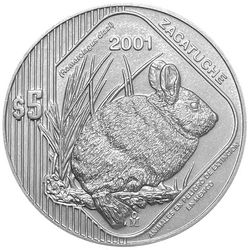
KM-660
Also known as the teporingo or zacatuche, volcano rabbit (Romerolagus diazi) is native to four volcanoes located south of Mexico City. It is the smallest of the Mexican rabbits and the second smallest rabbit in the world.
Prairie dog
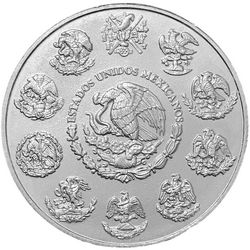
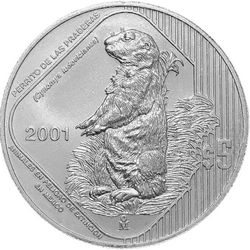
KM-659
The black tipped prairie dog (Cynomys ludovicianus) is a highly social, burrowing rodent. It can be found from southern Canada to northwest Mexico, although members of the endangered Mexican subspecies, Cynomys mexicanus, are found only in the grasslands in the San Luis Potosí / Coahuila / Nuevo León area. They can weigh up to two pounds and resemble large squirrels.
(Information from Don and Lois Bailey. Whitman Encyclopedia of Mexican Money, Vol. 2. Modern Coins of Mexico, 1905 to Date, 2015)
